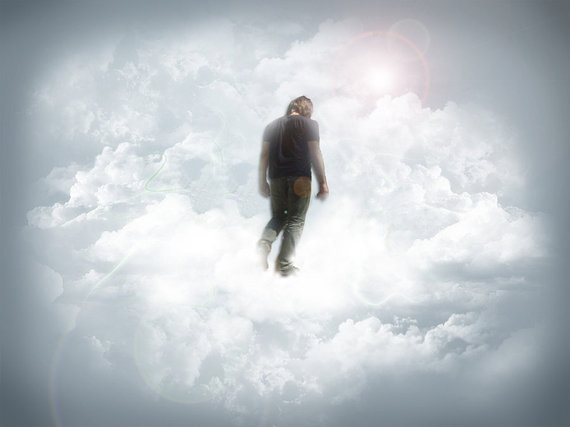A young woman held captive for months by ISIS wanted to make one point clear in a brief, handwritten letter to her family.
"I remember mom always telling me that all in all in the end the only one you really have is God," Kayla Mueller wrote. "I have come to a place in experience where, in every sense of the word, I have surrendered myself to our creator b/c literally there was no else.... + by God + by your prayers I have felt tenderly cradled in freefall."
The 26-year-old aid worker from Prescott, Ariz., was confirmed dead earlier this month.
Her letter released by her parents after her death resonated with a note I recently received from a friend who described coming face to face with mortality in a serious health crisis as a spiritual blessing.
"I am at peace with the situation, regardless of whether or not the cancer returns," my friend said. "Obviously, I prefer that it doesn't, but that is not my decision. As noted in Romans 14, 'If we live, we live for the Lord, and if we die, we die for the Lord. So, whether we live or die, we belong to the Lord.'"
Both of these eloquent testaments of faith affirm what a developing body of research is finding: Religion can be a critical resource in reducing death anxiety.
Not all will benefit equally, and some may suffer greater worries if they believe they will be found wanting by a judgmental divinity.
But the research opens windows of understanding for caregivers, family and friends seeking to help support others in their journey through the shadows of the valley of death.
Finding meaning
Most Americans hold on to the hope of eternal life. This belief has remained relatively unchanged in recent decades despite a rise in secularism and the visibility of prominent atheist authors such as Richard Dawkins decrying such ideas as delusions.
In the 1976 General Social Survey, nearly three-quarters of respondents said they believed in a life after death. The percentage holding that belief was unchanged in the 2012 survey.
And for many people, this is a great resource. In general, a number of studies indicate a strong faith and a deeply held belief in the afterlife allows individuals to better cope with their own fears of mortality.
Consider these research findings from three studies since 2011:
• A study of nearly 1,000 members of the Presbyterian Church (U.S.A.) found that more frequent church attendance, involvement in church activities outside of worship and belief in life after death were all associated with less fear of the unknown beyond this life. More frequent prayer and Bible reading were related to lesser fear of dying in pain.
• Religion and spirituality were important sources of support and comfort to most participants in a study of parents of children facing life-threatening conditions. Parents reported belief in an afterlife was ''reassuring,'' providing ''peace'' and ''acceptance,'' and helped parents to be ''not afraid'' of their children's deaths and to 'trust in God to take care of [our child].''
• Reading religious texts was related to lower death anxiety among individuals who were highly religious, according to a study of college students and church members.
Even the mortality concerns of atheists and agnostics may be eased by assurances of an afterlife, according to yet another study of 139 college students.
"When it comes to a choice between one's beliefs and the possibility of life after death, this research supports the old adage that (at least implicitly) there are no atheists in foxholes," the study authors reported in the British Journal of Social Psychology.
Where is thy sting?
What the study findings also reveal, however, is that individual responses to death anxiety vary widely across a spectrum of beliefs.
For example in the study of parents with ill children, some faithful parents found it helpful to express their anger toward God, but some parents moved away from their faith.
And in the study of students and church members, those with low degrees of religiousness reported greater anxiety after reading the religious text. "Religion may be one human response to being alive and having to die, but unless it is your response, it may be a poor one," the authors said.
The findings have several practical implications.
For religious groups, the results are a reminder of how critical belief in an afterlife is to the way many members find meaning in their lives amid the reality of death.
For caregivers, the studies illustrate the reality that individuals find different coping resources in the face of death. Rather than pressing one's own viewpoint, social workers, friends and family may find it more beneficial to listen to those struggling and be respectful to their feelings and beliefs, the research suggests.
For my friend facing cancer and for a young aid worker trapped in captivity among a group known for beheading its victims, faith was a great gift.
Kayla Mueller's hope that she soon would be reunited with her family was not realized.
But she was able to reassure herself and them: "I have been shown in darkness, light + have learned that even in prison, one can be free."
David Briggs writes the Ahead of the Trend column for the Association of Religion Data Archives.
Image by Thue CC 3.0

